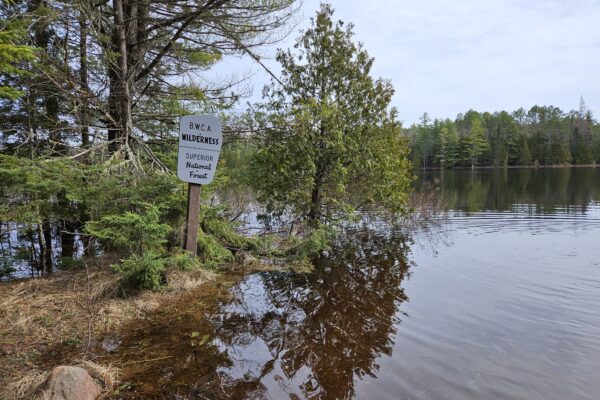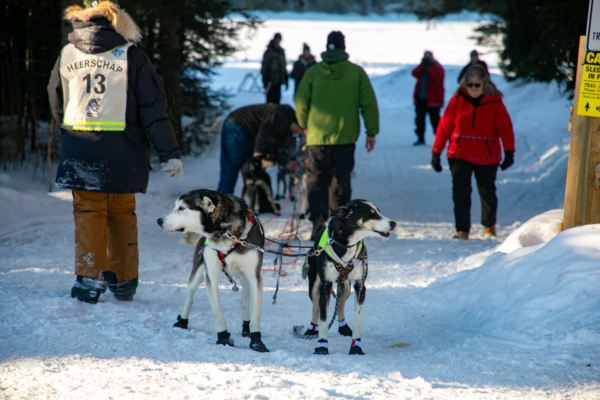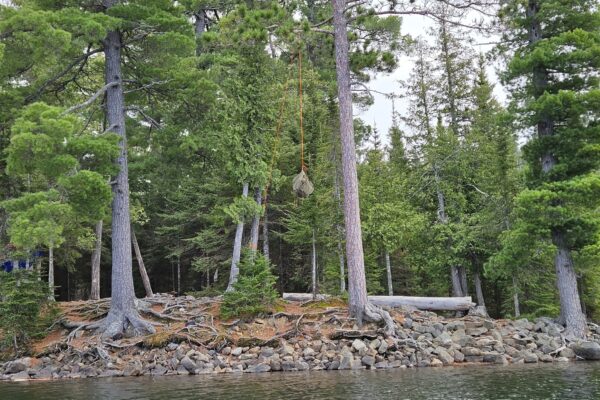Bear encounters up after bad summer for berries
A bad berry season could be the cause of an increased number of early nuisance bear encounters across the state. That’s according to Minnesota Department of Natural Resources Bear Project Lead Andrew Tri. He said that the department has gotten more calls this year reporting bear encounters than any other year since the DNR began tracking calls.
This is the time of year when bears enter a phase called hyperphagia, an insatiable hunger, as they begin preparing for winter in a den. Tri told WTIP that typically, bears would have spent the summer relying heavily on berries. The poor berry crop this summer, however, is contributing to more bears seeking food sources from humans, like bird feeders and trash cans, as they enter hyperphagia.
Tri added that last summer was a bumper berry year, so bears went into den in good condition. The short winter, however, meant that many bears left their dens a little earlier than usual, but didn’t benefit from an early green-up, as spring plants didn’t have the same early start. The extreme differences in precipitation throughout the summer has also contributed to an inconsistent growing season for typical bear food sources.
As bears turn to human populated areas in search of food, Tri said that the most important thing that people can do is to secure their trash cans, empty their bird feeders, and keep things like chicken food in inaccessible locations. He said that as long as those attractants aren’t available to bears, people should not be having bear encounters. He added that residents can find more resources for how to coexist with bears on the BearWise website, a national program that the MN DNR participates in to educate people on living safely in bear country.
Tri also gave a reminder to hunters that as bear season approaches. He said that female bears with large ear tags are part of a DNR study on reproduction, and asks hunters not to shoot those animals.
WTIP’s Kirsten Wisniewski spoke with Andrew Tri about this season for bears, and about how people can best prevent conflicts with bears. Audio of that interview is below.














